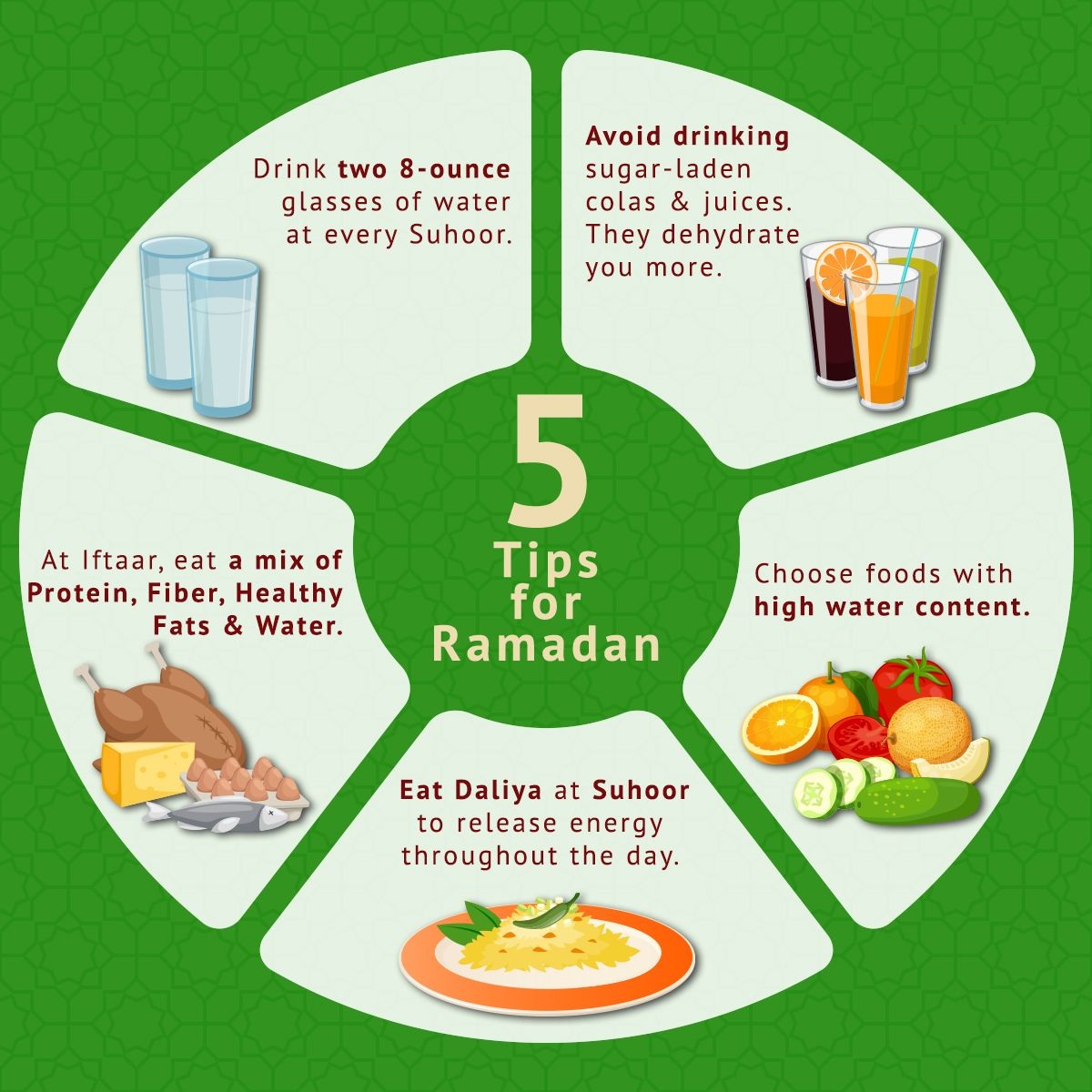Health Benefits of Fasting in Ramadan
Ramadan is a sacred time for introspection, personal growth, compassion, and spiritual enrichment. Central to this holy month is fasting, where individuals refrain from food and drink from dawn until dusk. Beyond its religious significance, fasting during Ramadan carries profound health benefits that contribute to overall well-being.
Is Ramadan Fasting Good For Health
1. Cholesterol Regulation: Research indicates that fasting positively influences lipid profiles, aiding in reducing “bad” cholesterol levels. This reduction promotes cardiovascular health and mitigates the risk of strokes and other related illnesses.
2. Appetite Management: Observing Ramadan fasting cultivates healthier eating habits by allowing the body to adapt to consuming smaller portions. This gradual adjustment reduces appetite, fostering sustainable dietary practices beyond Ramadan.
3. Detoxification: Fasting triggers a process of detoxification within the body, eliminating harmful toxins stored in fat reserves. This month-long purification enhances overall bodily function and facilitates a transition to a healthier lifestyle.
4. Enhanced Mental Well-being: Fasting stimulates brain activity, promoting the growth of new brain cells and improving cognitive functions such as memory and learning capacity. Moreover, it fosters resilience to stress and contributes to mood stabilization, enhancing mental clarity and emotional well-being.
Health-conscious Practices During Ramadan
1. Nutrient-rich Iftar: Opt for a balanced Iftar comprising nutrient-rich foods such as dates, water, light soups, lean meats, whole grains, and vegetables. Prioritize vitamins like C and D to maintain optimal health and well-being.
2. Hydration: Ensure adequate hydration by consuming at least eight glasses of fluids daily between Iftar and Sehri. Water should be the primary beverage choice, supplemented by juices, milk, and soups, while caffeinated drinks should be limited to prevent dehydration.
3. Wholesome Sehri: Start your day with a wholesome Sehri consisting of foods with a low glycemic index, such as oatmeal, cheese, fruits, and vegetables. Stay hydrated with water, milk, and fresh juices to sustain energy levels throughout the fasting hours.
4. Moderate Exercise: Incorporate moderate physical activity into your routine to combat lethargy and maintain vitality during Ramadan. Engage in activities before Sehri or a few hours after Iftar to maximize the benefits of exercise while avoiding dehydration.
5. Healthy Habits: Utilize Ramadan to cultivate healthy habits and eliminate detrimental ones. Abstain from addictions like smoking and excessive sugar consumption while embracing a lifestyle characterized by balanced nutrition, hydration, and regular exercise.
Embrace the holistic approach to health and wellness during Ramadan, fostering physical, mental, and spiritual harmony. Let this Ramadan be a time of renewal and rejuvenation, guided by principles of self-care and compassion towards oneself and others. Make this Ramadan a healthy and happy one. Qrex Diagnostic Centre is here to provide your health support.

